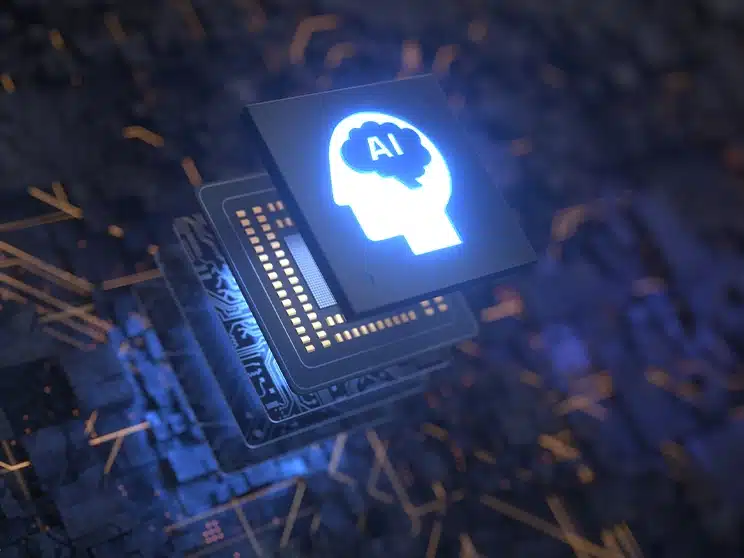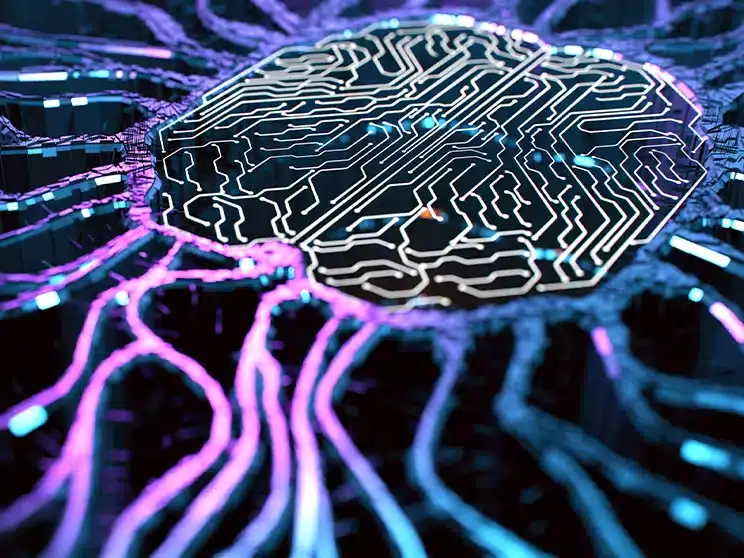AI Takeover? What You Need to Know About ChatGPT
Updated: June 19, 2024

If you’ve spent more than 5 minutes on the internet, and particularly social media, you know there is a lot of buzz around a new artificial intelligence called ChatGPT. Understandably there are ethical concerns about how Open AI GPT (Generative Pre-trained Transformer) will be used. Is it the beginning of every horror sci-fi movie we’ve seen or a precursor to a better life?
What are the implications when you have a chat with AI? There’s no doubt that it will change our society, so let’s dive right in and learn more!
What is ChatGPT?
AI was first successfully developed in 1951 at the University of Oxford. It was originally developed as a gaming program that within a few months could play a complete game of checkers at the same speed as a human. We’ve certainly come a long way from those early days. Facial recognition on our phones, social media, spell check, Alexa, Siri, and smart home devices are all examples of how AI has become part of our daily lives.
And now there’s ChatGPT, which launched in November 2022. It’s a chatbot that answers questions with remarkably human-like text. You can try it out for yourself for free at chat.openai.com.
For example, if you ask this AI chatbot “Will artificial intelligencel ever turn on humanity?” Instead of just replying “No,” it explains in a paragraph that while it can’t predict the future with certainty, each AI system follows the rules and objectives set out by its creators.
ChatGPT will conversationally interact with you. That means it can stay on track with follow-up questions, reject inappropriate inquiries, challenge your premises, and even admit its mistakes. While it is startling that technology approximates this level of intelligence, keep in mind ChatGPT is not a sentient entity. It does not have the capacity to reason logically as a human would.

How Was ChatGPT Made?
ChatGPT came out of Open AI, a for-profit artificial intelligence research lab located in San Francisco, CA co-founded by Elon Musk and Sam Altman and financially backed by Microsoft. It is important to understand that AI needs to be trained and with ChatGPT, the creators used both Supervised Learning and Reinforcement Learning.
Open AI GPT used Reinforcement Learning from Human Feedback (RLHF) which resulted in minimizing harmful, biased, and incorrect output. Predecessors to ChatGPT were GPT, GPT-2, GPT-3, and GPT-3.5. Each successive AI chatbot was built and fine-tuned based on the previous one.
In the supervised learning phase, the chatbot was fed massive amounts of data gleaned from the internet. However, as we know, not all information is completely accurate and sometimes the AI responses reflect that. To fine-tune the AI, the reinforcement learning phase was started where the chatbot was trained to produce responses that are both human-like and correct.
In essence, ChatGPT has consumed a significant chunk of the internet. Just think about how massive that mountain of information is! The chatbot can take all of the info and use it to predict answers – a bit like someone trying to solve a mystery.
What Is It Used For?
ChatGPT’s neural network has been trained to respond to prompts from humans who, we know, have an unlimited ability to ask questions. As a result, the opportunities are endless when it comes to having a chat with artifical intelligence. One can even create a custom ChatGPT bot that trains on your own data. But the unknown about its ultimate limitations is making some people question whether it will replace people in jobs and how it will change the education and arts landscape.
Despite the legitimate concerns and questions, ChatGPT can be informative and useful. It can tackle writing projects like emails, essays, and poetry, use a prompt to write code, answer questions, act as a virtual assistant in businesses, and help in marketing.
Open AI GPT can train AI to assume mundane and repetitive tasks like data entry and initial customer service. It’s accurate to say that AI and advanced robotics will displace workers in the next few years but the flip side is that it will create just as many, if not more, employment opportunities.
AI has changed how we do our jobs. We use automated spell and grammar checks instead of a clunky dictionary. We send quick texts instead of getting bogged down in phone calls. We can send a lot of information to people with one click of a key instead of stuffing envelopes. It should be expected that AI will continue to mold how we work.
Concerns About ChatGPT
Not everyone is throwing a ticker-tape parade for ChatGPT, however. Because the AI is trained based on human-constructed content on the internet, it’s easy to see that many people are worried about getting ripped off by ChatGPT. In fact, there are two very big concerns that have come to light since ChatGPT was developed, and here’s the latest you should know.
Plagiarism
Because this technology learns by consuming the content on the internet, plagiarism is a real concern. Multiple schools and universities are concerned about the serious transgression of plagiarism and have banned using ChatGPT. It can also disseminate false information because it bases its responses on info it has consumed. Currently, there are many ongoing efforts to incorporate ethical AI principles into the development of this type of technology.
Copyright Infringement
Groups of artists have already launched lawsuits claiming that their intellectual property was used to train the chatbot who then produces work that can be considered stolen from the original human artist. This AI learns by viewing millions of content created by real human artists and by analyzing patterns re-creates art that is extremely similar. Many artists argue that they deserve a fair cut of profits made from AI artwork.
Google’s Competitor to ChatGPT: What We Know So Far
Open AI gpt is not the only chatbot out there. On February 7, 2023, Google released BARD to compete with Open AI. Like ChatGPT, users of Bard key in questions and receive human-like responses. However, unlike ChatGPT which has access to internet data until 2021, Bard can include recent events in its responses.
Bard is based on LaMDA (Language Model for Dialogue Applications) and has proven to have remarkable abilities to generate text. The rollout of Bard is only available to specific testers at the moment but Google has stated that the general public will have access to it in the coming weeks.
Interested in AI and the Future of Tech?
The future of tech is bright and if you’re interested in studying AI, the first step is higher education. At University of the People (UoPeople) we are an American accredited school offering several computer science degree options.
You can pursue an associate’s or bachelor’s degree in computer science, a master’s in information technology or a certificate in various computer science specialties.
UoPeople has eliminated traditional barriers to college by being 100% online, tuition-free, and only requiring students to provide a high school diploma or equivalent and proof of English language proficiency!

Closing Thoughts
ChatGPT is new and exciting and it remains to be seen how it all plays out. What will the limits of Open AI gpt be? Hopefully, it will prove to enrich our lives in the way that other AI has. Rest assured that the world won’t be taken over by malevolent AI.
Take a look at it and see for yourself. Perhaps you’ll be bitten by the tech bug!
